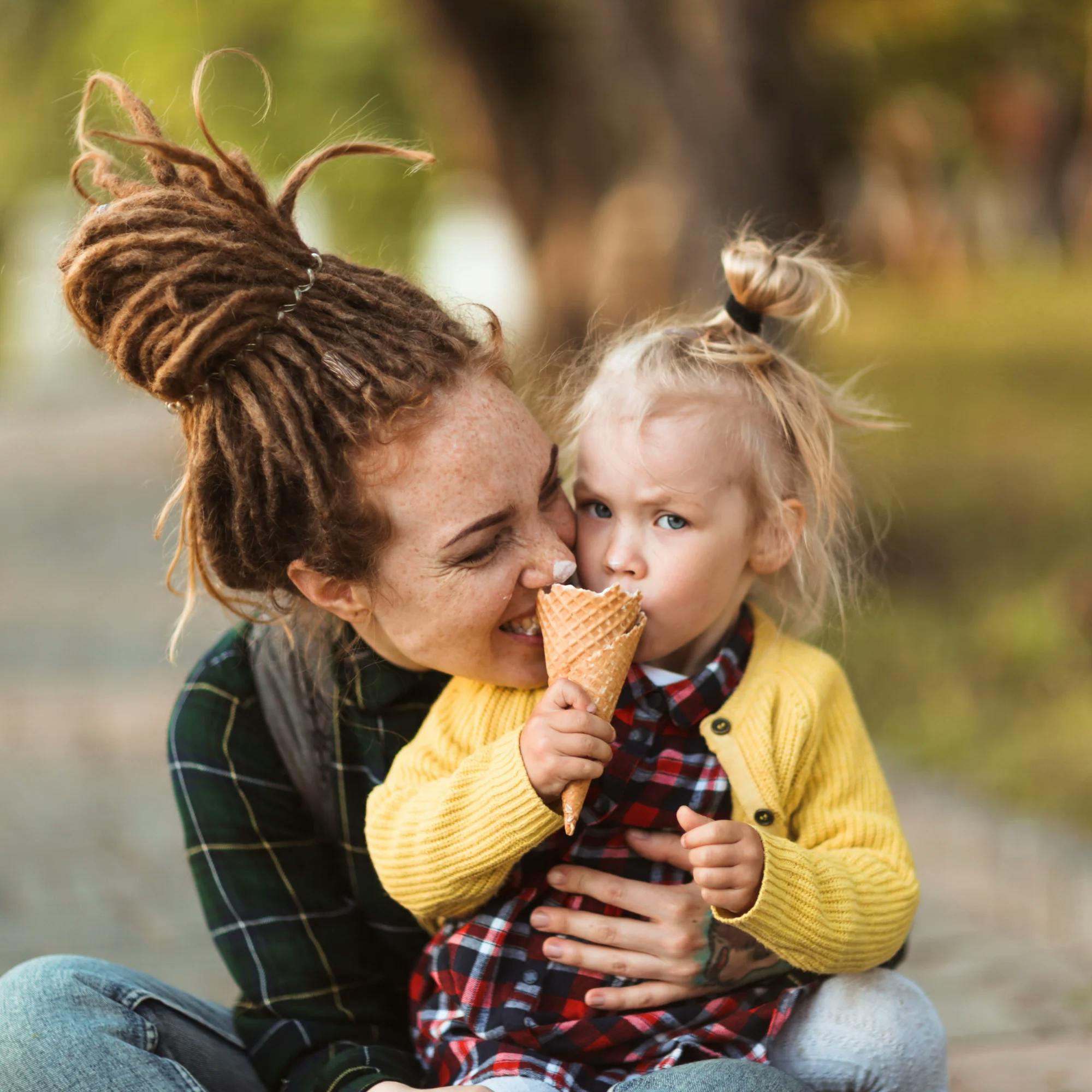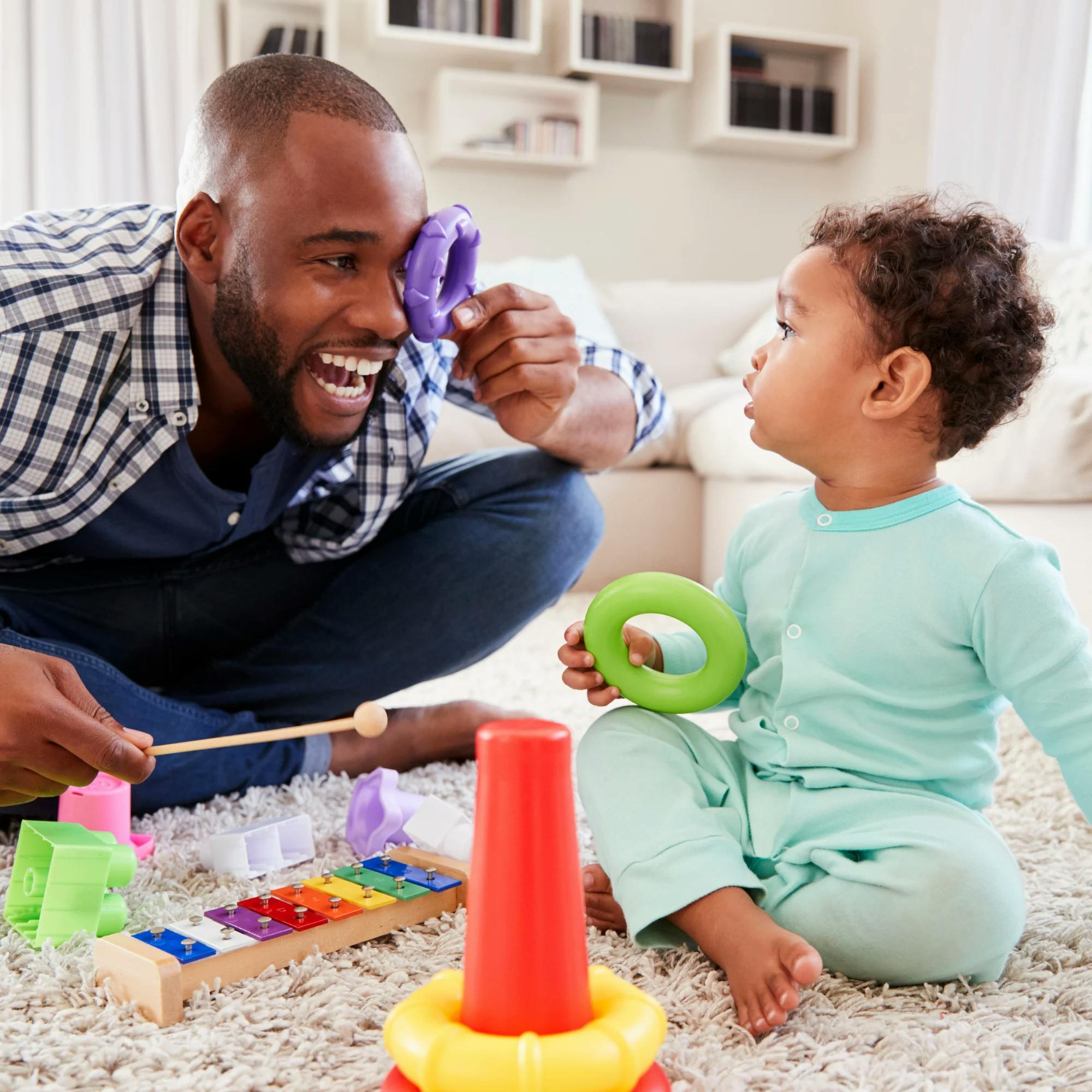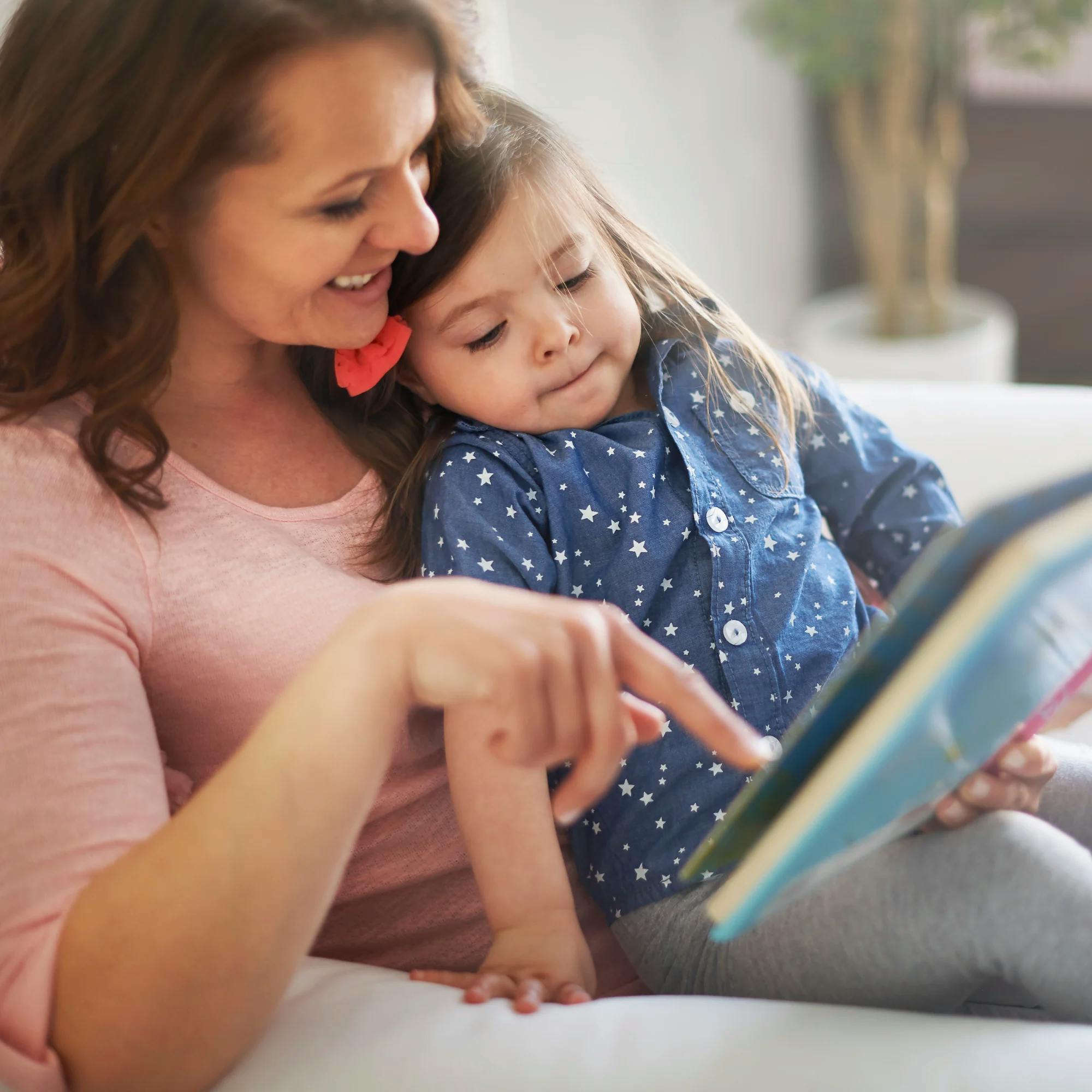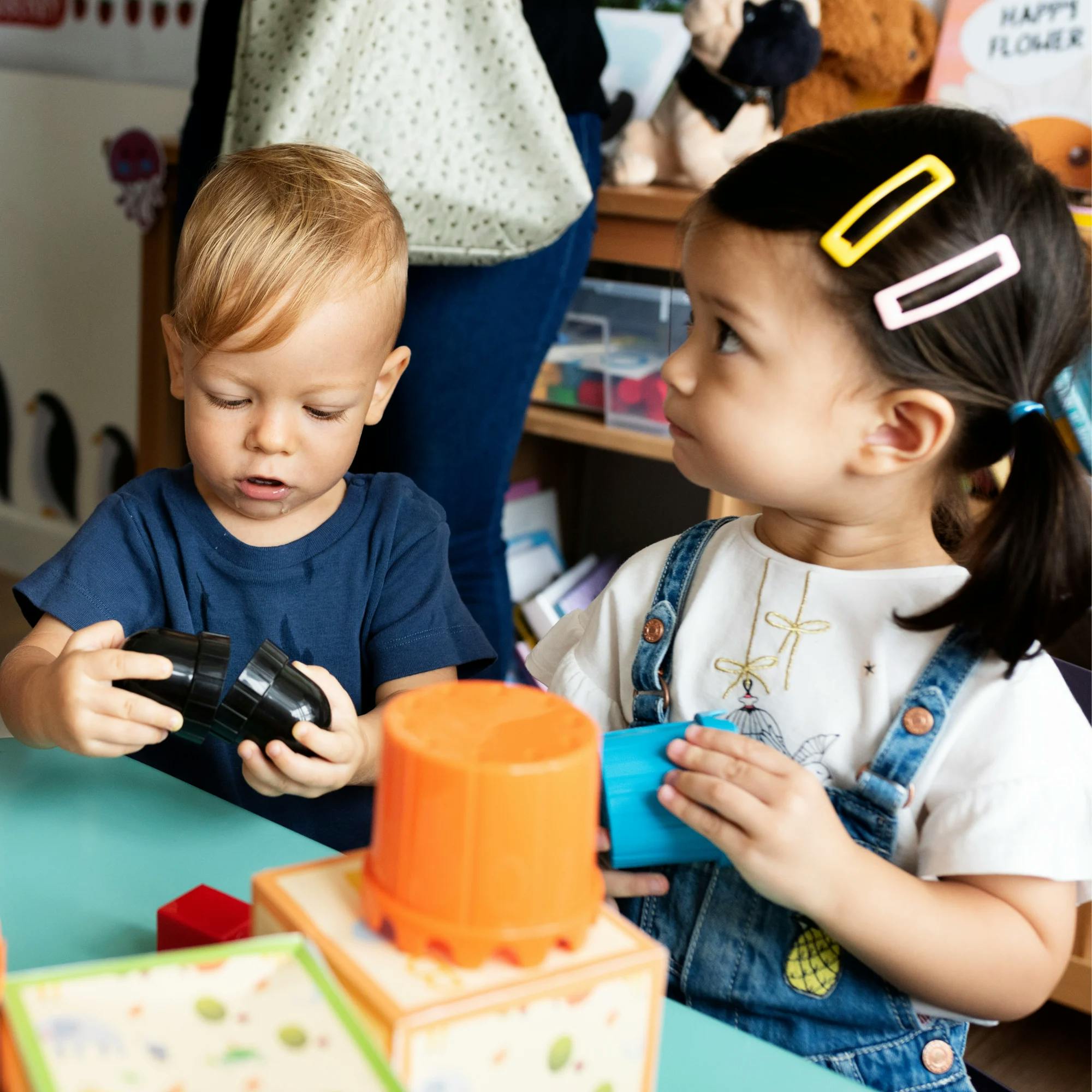Are you waiting for the day your toddler starts talking? Does your 2-year-old understand what you say, but they don’t use many words themselves? When a child says their first words, they also start to reveal more of their personality. It’s an exciting phase of parenting! So it’s normal to feel a bit impatient or concerned if your child seems to be a “late talker.”
Let’s explore what it might mean if your toddler seems to understand everything but isn’t talking yet. Or what if your 2-year-old seems to be “stuck” on babbling and isn’t moving on to using words? Find out why this might be happening and when to schedule a speech evaluation. Plus, get three easy speech therapy exercises to try with your toddler at home.
Is your child on track?
Take our free screener to learn more about your child's development and whether a speech evaluation is recommended.
 Screener for children
Screener for childrenWhy does my 2-year-old understand everything but not talk?
If you’ve got an active toddler at home who seems to understand everything but isn’t talking, you’re probably wondering why. It helps to understand how language development works—a few things may surprise you!
We tend to focus a lot on those magical “first words.” And rightfully so! But language isn’t just the ability to talk. Language includes using gestures, understanding what words mean, and knowing how to put words together into sentences.
There are actually two kinds of language: receptive language and expressive language.
Receptive language is the ability to understand spoken words. As babies and toddlers develop their communication skills, they must first be able to understand language in order to use it appropriately.
Expressive language is the ability to express what we want, need, and think. It includes verbal communication (using words to speak) and nonverbal communication (like gesturing or pointing).

Some children’s receptive language skills may be more advanced than their expressive language skills. In this case, you may notice that your toddler understands and can nonverbally respond to what people say to them.
For example, your child may be able to follow directions like “Bring me your ball.” Or they can point to their feet when you say “Where do your shoes go?” However, they may not be using words to communicate clearly.
If your 2-year-old seems to do well with understanding words, their receptive language skills are likely on track. If they seem to be a “late talker,” they may have an expressive language delay or a speech delay.


Why is my 2-year-old babbling but not talking?
What if your toddler is babbling instead of using words? “A child who understands everything but is only babbling, not talking, might have a problem with their speech,” says Alexis Irazoque, M.S., L/SLP, an Expressable speech therapist.
Speech isn’t the same thing as language. Speech refers to how we say sounds and words. Speech includes:
How we make speech sounds using our mouth, lips, and tongue
Our voice, or how we use our vocal folds and breath to make sounds
Fluency, or the rhythm and smoothness of how we speak
Some 2-year-olds have trouble forming sounds into words. Your toddler may seem to be stuck in the babbling stage, not progressing on to words. They may actually be trying to talk, but they’re not able to make the correct speech sounds to say the words clearly. This may be due to a speech delay or a speech sound disorder.
What is a red flag for speech delay?
So how do you know if your child is on track or if they might have a speech delay? While all kids develop at their own pace, there are certain skills to watch for at certain phases in your toddler’s development.
Toddlers usually say their first word at around the 12-month mark. Some children start talking a little earlier, and for others it’s a little later. If your child hasn’t said their first word by age 15 months, this could be a sign of a speech delay.
By age 18 months, most toddlers are starting to use words more functionally, for a reason. For example, they start to ask for things using words. They may ask “Milk?” or “Ball?,” which shows they’re learning that words can be used for a purpose. A speech delay could be present if your child is not doing this by 18 months.
Let’s look at some other typical speech and language milestones for 2-year-olds.
Expressive language milestones for 2-year-olds:
Using two-word phrases by around 24 months old
Having a spoken vocabulary of around 50 words
Engaging in short conversations
Beginning to use pronouns, such as me, my, mine
Possibly trying to answer simple questions
Using words to ask for things or communicate their emotions
If your toddler is not doing these things, this could be a red flag for a language delay.
Speech milestones for 2-year-olds:
Here’s a general rule of thumb: By the time your toddler is 24 months old, familiar listeners, such as family members, should be able to understand about 50% of your child’s speech.
Your child should also be learning new speech sounds during this time. Between the ages of 2 and 3, kids can typically pronounce the /p/, /m/, /h/, /n/, /w/, and /b/ sounds. They should be close to mastering their /k/, /g/, /d/, /t/, and /ng/ sounds. They should also have started using the sounds /f/ and /y/.
Irazoque adds, “Your toddler may still say things like ‘nana’ instead of ‘banana,’ or ‘ca’ for ‘cat,’ dropping the final sound. Errors like this can be expected. However, these speech errors should go away by the time a child turns 3.”

When should I be concerned about my child not talking?
If your toddler seems to understand you but isn’t talking much, or if they seem to be stuck on babbling, they may need extra help to develop their speech and language skills. Communication skills build on each other over time, much like a ladder. So when children don’t reach speech and language milestones at the typical time, they’re at risk of falling behind. The earlier you can start speech therapy, the more quickly your child will make progress.
Signs that your 2-year-old may need speech therapy
They aren’t using at least 50 words
They’re not combining their words into two-word phrases, such as “more milk” or “go up”
Their speech is hard to understand, even by family or people who see them often
They seem to be regressing in their development, or losing skills they once had
If your child seems to be a late talker, don’t panic! What’s important is that you talk with your pediatrician and a licensed speech therapist. The speech therapist can perform an evaluation to see if your child qualifies for speech therapy.
Because the age of 2 is such a critical year of learning, it’s important to give kids the support they need to express themselves and fully communicate their wants and needs. While it may be tempting to take a “wait and see” approach, research shows that early intervention benefits kids both socially and in school as they grow older. Even kids who are nonverbal can benefit from speech therapy!

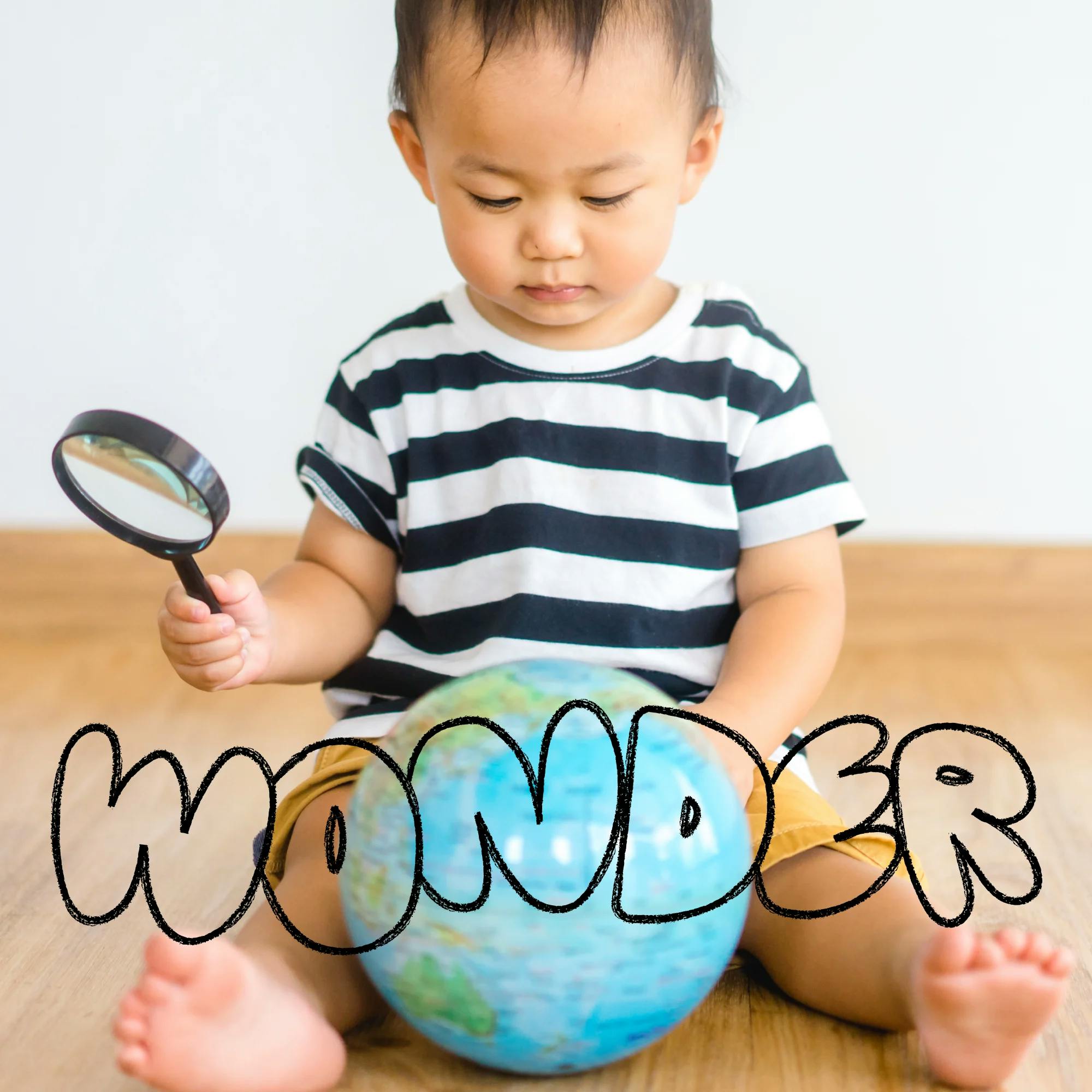
3 speech therapy exercises to try with your toddler at home
Irazoque recommends these speech therapy exercises to try at home. She says, “You can help your child learn to talk through simple, small changes in how you interact with them. The simplest changes can make the biggest difference!”
For each one, try modeling, or saying, a single word your child could say during the interaction. This could be something like “Puzzle!” or “Book?” As your child begins to use more words, you can start working on short phrases. So “Book?” might turn into “Book please!”
Modeling is helpful, but don’t forget to back off as your toddler gains more independence! Simply pause and see if your child will say something on their own, without your help. This technique is called wait time. It can make all the difference in your child’s communication skills!
1 Create a situation where your child needs your help
Put toys or other desired items slightly out of your toddler’s reach. Or give them something in a container that they can’t open themselves. This creates a highly motivating situation that should prompt your child to ask for help. They might reach or point, or say words like “help” or “open.” Make sure to stay nearby to see what they do.
Quick demo: The "wait time" technique helps your child learn to talk
Watch here2 Hand over the wrong item
If your toddler asks for an item, or you can tell that they need something, give them the wrong item and see how they respond. So if your child asks for their toy train, give them their stuffed dog. You’ll likely get some confused looks! But this will prompt your child to continue trying to tell you what they need.
3 Create a situation where your child wants more
Try giving your child one piece of a toy at a time, like a puzzle. They have to communicate in some way for each piece, perhaps by saying a word like “more” or “again.” You can do this same exercise with pieces of a snack. But this is important: We don’t want to withhold anything from a child for too long. Give them a chance to communicate, but if they don’t, go ahead and give them the item. As you do it, model the word yourself.
Check out this article for lots more easy language tips you can try as part of your toddler’s daily routine!
Looking for a speech therapist for your toddler?
Expressable has speech-language pathologists across the country who are experienced in working with toddlers and their caregivers. Contact us today to find a speech therapist who's right for your family. By addressing speech or language delays early, it can reduce frustration for you and your child, allowing them to better participate in the world around them.
Frequently asked questions (FAQs)
My toddler is very active but isn’t talking–what does that mean?
Each child is unique, with their own strengths and their own schedule for learning new skills. However, a toddler might have a speech delay if they haven’t said their first words by 15 months, or they aren't using at least 50 words by 24 months. If you're worried about your child's speech, an evaluation can help you figure out next steps. Getting help early can make a big difference.
How many words should a 2-year-old say?
At age 2, kids should be saying about 50 words. They should be using two-word phrases, like "more milk,” and having short conversations. To learn more about typical milestones for 2-year-olds, take our free screener. Questions are tailored by age, and you’ll get personalized advice about whether a speech evaluation is recommended.
What if my child is babbling but not talking?
If your toddler is babbling but not talking, they might have a speech delay or a speech sound disorder. This could mean they have trouble turning sounds into words. To learn more about your child's speech development, take our free screener and think about talking to a speech therapist.
When should I be worried about my toddler not talking?
While it may be tempting to “wait and see,” research shows that early intervention has big benefits for toddlers. Your 2-year-old may need speech therapy if they aren’t using at least 50 words or speaking in two-word phrases, their speech is hard to understand by people who see them often, or they seem to be losing skills they once had. A speech therapist can perform an evaluation to see if your child needs support.
Is a 2-year-old too young for speech therapy?
There is no minimum age for speech therapy! A toddler doesn’t need to sit still and pay attention for a whole therapy session. While speech therapy is fun and play-based, the key is parent involvement. Your speech therapist should focus on parent coaching, giving you the tools and techniques you need to help your child at home. Learn more about online speech therapy for toddlers in this article.
Key takeaways
There are two areas of language development: receptive language and expressive language.
Understanding words but not talking could be a sign of an expressive language delay.
Speech and language skills build on one another. If your child has a delay, it’s important to begin speech therapy sooner rather than later.
At age 2, a child may have a speech delay if they aren’t using 50 words, using two-word phrases, or having short conversations.
How Expressable Can Help
Concerned your child isn't reaching age-expected milestones? Looking for communication support from a professional? Expressable is a national online speech therapy practice serving children and adults. We treat all major areas of communication and feeding, offer flexible hours including evenings and weekends, and accept most major health insurance plans. We’re proud to have earned more than 3,000 5-star reviews from our clients (4.9/5 average).
Our therapy model is centered on parent and caregiver involvement. Research proves that empowering caregivers to participate in their loved one’s therapy leads to better outcomes. That’s why we combine live, 1-on-1 speech therapy with personalized education and home practice activities for faster progress.
Communication is more than words. It’s how we share how we feel and show who we are. We’re here to help you or your child do just that.

 Abby Barnes, M.S., CCC-SLP
Abby Barnes, M.S., CCC-SLP